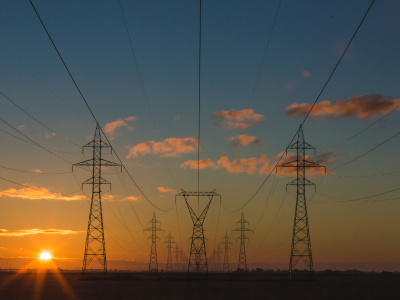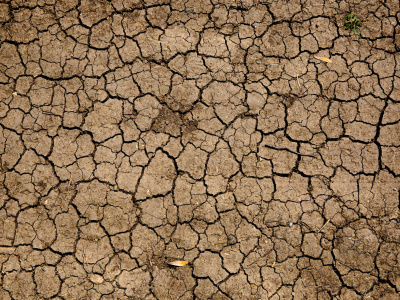
Deciphering the Africa Climate Summit
Kenya hosted the first-ever Africa Climate Summit from 4 to 6 September 2023. In the resulting Nairobi Declaration, African member states set out a call for global collective action for financial reforms and for the mobilisation of climate finance. While the summit succeeded in drumming up support for climate action and low-carbon development and represents a key step towards a unified African voice for COP28 in November and December this year, controversies and flaws marred its declaration.
The purpose of the summit was to bring African leaders together to devise solutions to help the continent tackle the climate crisis. Given Africa’s unenviable position as the most vulnerable region to this crisis, the summit was long overdue.
New announcements
The summit shows that African climate diplomacy is moving towards a more coherent and unified messaging. This is a critical gain, especially since the continent arrived at COP27 with rather diverging positions from the African Group of Negotiators (AGN), and a last-minute common position from the African Union (AU), which mostly emphasised Africa’s reliance on fossil fuels.
The Nairobi Declaration, signed by 19 African heads of state, is an attempt to rewrite the narrative of African climate objectives, focusing less on the areas of disagreement (fossil fuels), and far more on the opportunities for Africa and the (global) financing architecture that is needed for a successful African climate action.
The declaration picks up on the slow progress made at the Paris Summit for a New Global Financing Pact in June. It calls for an urgent reform of the multilateral financial system and a global carbon taxation regime, responsive to Africa's needs. This includes debt restructuring, under the umbrella of a new global climate finance charter.
It further commits African leaders to action to reverse biodiversity loss and promote clean cooking technology and green industrialisation, while acknowledging the critical relevance of Africa's enormous natural capital in lowering emissions and encouraging green transition. A total of $26 billion in investments in Africa were announced, combining public, private and multilateral finance. But it remains to be seen how much of this is new money.
Kenya and the AU also used the summit to market Africa as a source of carbon credits. The summit kickstarted the Africa Carbon Markets Initiative (ACMI) launched at COP27. The United Arab Emirates committed to purchasing $450 million in carbon credits from the ACMI, and Climate Assets Management announced a $200-million investment in projects that will generate ACMI credits.
There are some reasons for concern
The emphasis on carbon offsets at the summit has been heavily criticised by African civil society organisations and climate activists. They see carbon credits as a false solution, allowing foreign corporations to continue to pollute, while bringing limited benefits in terms of African development.
While monetising Africa’s natural climate sinks is a legitimate option for a continent where capital is already hard to come by, the risk is that an overreliance on carbon credits, in the absence of more ambitious action to phase out fossil fuels, may further deepen the long-term climate risk African countries are exposed to. Carbon markets are an acknowledgement that emissions will not be eliminated overnight, but there is a need to prevent corporate capture of the initiative and guarantee that it benefits local communities and powers green economic development for vulnerable populations.
They see carbon credits as a false solution, allowing foreign corporations to continue to pollute, while bringing limited benefits in terms of African development.
Numerous other concerns were raised. Over 500 civil society organisations signed an open letter stating that the agenda had been hijacked and that Western interests were being championed. Many national delegates arrived at the Africa Climate Summit with numerous complaints about the failure to achieve a more extensive and inclusive consultation process.
Kenya and a handful of other countries are pushing intensely for the green industrialisation of the continent. Yet there is the question of whether this green technology optimism is in the direct interest of all African countries. The continent has a large number of fossil fuel exporters, including some least developed countries with vulnerable economies who risk being largely excluded from new green global value chains.
While some, including Kenya, Senegal, Morocco, Egypt and South Africa, are able to position themselves for green investments, can the rest of Africa afford to be bullish on green transition?
Senegal and Mozambique have been expanding their gas industries, while South Africa still relies on coal for most of its electricity generation. Nigeria has over 200 trillion cubic feet of gas reserves. Using gas power and renewable energy will be crucial in addressing electricity access constraints and growing the economy. While some, including Kenya, Senegal, Morocco, Egypt and South Africa, are able to position themselves for green investments, can the rest of Africa afford to be bullish on green transition? How can we limit the sting of an accelerated transition for the most vulnerable economies? Could this partially explain why only 14 of Africa's 55 national leaders attended the summit?
The discussions during the three-day meetings focused strongly on market solutions to the climate crisis, yet few human-centred ones were discussed. The declaration failed to introduce significant new commitments on climate adaptation despite the fact that Africa suffers disproportionately from the climate crisis.
The AGN has been asking for the doubling of adaptation finance by 2025 and the delivery of the $100-billion-a-year goal in line with the Paris Agreement. There was no emphasis on the need for local adaptation, even though a very small portion of climate finance goes to local initiatives and programmes. Loss and damage was lumped together with adaptation in a sentence, but these are two fundamental and different issues. By considering both together, Africa risks selling itself short.
Furthermore, given that agriculture employs the majority of the African population and is the primary source of income for the poor, one would anticipate that measures to address the climate crisis’ impact on the agri-food sector would be amplified, but this was not the case. Food security was referenced only once in the declaration, despite the fact that the climate crisis is a major contributor to the continent's food security crisis.
Another issue that was glossed over was climate financing infrastructure readiness. The majority of the funding is highly skewed towards countries with substantial capacity to develop credible and bankable projects. The declaration is silent on the urgent need to further develop this and ensure that smaller nations, notably in the Sahel and Central Africa where the gap is significant, are able to attract additional climate finance.
Next steps
Overall, while the summit was imperfect, it did demonstrate the potential for African countries to take a more prominent role in climate negotiations. Attracting leaders and stakeholders from the EU and its member states, the United States, the United Arab Emirates, and other governments, as well as the private and non-governmental sectors, demonstrates Africa's position as a critical stakeholder in the global climate change discourse.
These actors should interpret this as Africa asserting itself in the multilateral arena and taking its climate diplomacy more seriously.
These actors should interpret this as Africa asserting itself in the multilateral arena and taking its climate diplomacy more seriously. With the recent admittance of the AU as a permanent member of the G20, Africa and its leaders are increasingly able to set the tone.
What happens after the summit, however, is far more crucial and will define the course of climate action on the continent. Ahead of COP28, Africa must put its house in order by addressing the contentious issues from the summit. Climate diplomacy should not be postponed until COP28. Instead, lobbying and consultations with other regions and governments should begin immediately. Global fora, such as the COP and G20, imply different demands, which require translating the current momentum into a targeted agenda.
The views are those of the author and not necessarily those of ECDPM.






